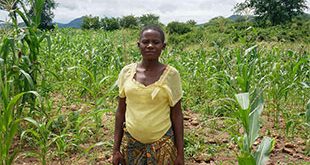
Addis Ababa, Ethiopia | XINHUA | The African Union (AU) Commission on Wednesday said that the ongoing COVID-19 pandemic has amplified Africa’s need to expand resource mobilization base.
“Already African countries are reporting a reduction in tax revenues, especially from the non-digitalized sectors. The decline in the prices and demand for commodities and the impact of the pandemic on the travel and tourism sectors, which African countries mainly depend on for tax revenues, have led to significant loss of revenues,” the AU said in a statement issued on Wednesday.
The AU’s call came in line with the deliberations of African tax officials and policymakers who are meeting virtually on August 26 and 27 as part of the High-Level Policy Dialogue, which is being hosted by the AU Commission.
Figures from the 55-member pan African bloc shows that Africa’s GDP growth is projected to be between -4.9 percent and -2.1 percent in 2020, which would lead to a reduction of between 135 billion U.S. dollars and 204 billion U.S. dollars from pre-COVID-19 GDP of 2.59 trillion U.S. dollars.
According to the AU, the COVID-19 crisis has increased poverty with the African Development Bank (AfDB) estimating that COVID-19 pandemic will push between 28.2 million and 49.2 million more Africans into extreme poverty.
Noting that the contracting economies are expected to translate into weaker fiscal positions for governments across the continent at a time of maximum need, the AU said the impact of the pandemic adversely impacted domestic resource mobilization efforts, and is likely lead to a reduction in overseas development assistance as donor countries face their own cash crunch in the midst of economic turmoil.
“In the light of this crisis, it is imperative that African policymakers respond with heightened urgency to the issues raised by the impact of the COVID-19 pandemic on African economies and take a closer look at the proposals for the taxation of the digital economy and their likely implications for revenue collection for the continent’s states,” the AU said.
The AU, noting that the COVID-19 pandemic has brought to the fore the focus on the rapidly growing shift to a digitalized economy across the globe, stressed that the social and economic lockdowns imposed by governments worldwide have pushed many individuals and companies onto online platforms to conduct their business.
“While other sectors of the economy have come to a standstill, the digital sector has boomed,” the AU said, adding that this has “huge implications” for business models going forward, and makes it even more urgent that solutions be found for the taxation of the digital economy that are equitable for source and market jurisdictions.
Noting that the unprecedented COVID-19 pandemic has demonstrated the inter-linkages between the world’s economies and trade supply chains and has further revealed the structural weaknesses and vulnerabilities in the economies, social and health systems between and within countries, the AU stressed that the pandemic “has disrupted societies and devastated economies throughout the world.”
“Africa has not been spared, albeit that the COVID-19 pandemic hit the continent later than other regions of the world and has seemingly been not as severe in terms of infections and mortality rates,” the AU argued.
According to the AU, the impact of COVID-19 on African economies has been severe, as international and intra-African trade has been drastically reduced as a result of lockdowns, movement restrictions and closure of borders and airports.
It also called on African countries to rethink their economic and fiscal policies to ensure that the recovery after COVID-19 is faster, with a more significant impact on the lives of their citizens.
The AU also emphasized “now more than ever it is critical that tax practitioners on the continent collaborate and pursue tax measures to shore up revenue that will foster economic development and bridge the gap that will arise due to a reduction in aid.”
******
XINHUA
 The Independent Uganda: You get the Truth we Pay the Price
The Independent Uganda: You get the Truth we Pay the Price



